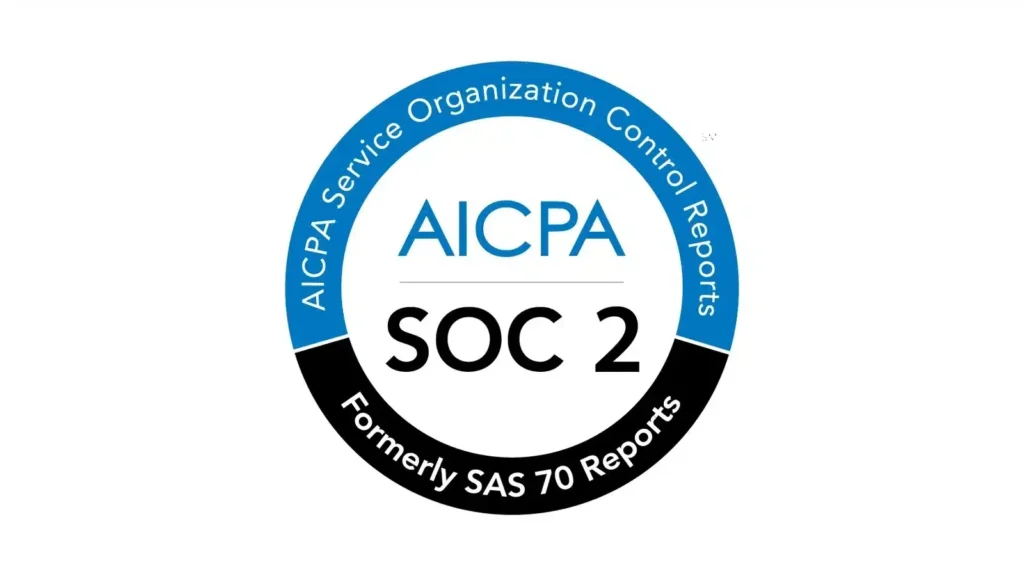-
Solutions
Discover Talent
Access top-tier candidates worldwide with our Global Talent Acquisition and recruitment services.
Employer of Record
Onboard top talent quickly and compliantly with our Employer of Record service.
Manage Employment
Adopt a human-centric approach to employee management, ensuring compliance.
Jump to:
Ireland Facts and Stats
Currency
Euro is the official currency of Ireland. Its currency symbol is €, EUR.
Employer Costs
Estimated 11.05% of employee’s salary
Onboarding
Within 48 hours with Emerald Technology
Languages
English and Irish are the official languages of Ireland.
Population
The population of Ireland is 5.028 million (based on World Bank numbers as of 2021).
Payroll frequency
Salaries are paid either on a weekly or monthly basis.
Hiring
Grow your team in Ireland
No entity, no problem
To start growing your team in Ireland, you must establish a local entity – including an account with a local bank, a local office and an address registered as a subsidiary. This allows you to manage payroll, tax, benefits and compliance for your employees, but can take several months. Emerald can hire and payroll your workers, quickly and compliantly with their ready to go entity. Make growing your team simple with Emerald as a global partner.
Emerald can hire and payroll your workers, quickly and compliantly with their ready to go entity. Make growing your team simple with Emerald as a global partner.
Pros & Cons of hiring in Ireland
“When exploring international expansion options in Europe, Ireland should not be disregarded. With English as its official language, a strong geographic position, and an
emerging economy, it undoubtedly presents itself as a good expansion territory.
Ireland is among the leading European countries in technology, tourism, history and culture, with over six hundred thousand foreigners living in the country (10%+ of the population). Expats benefit from its welcoming local employment rules and low corporate taxes.
Ireland is also home to numerous companies’ European headquarters such as Google, Ryanair, IBM, Intel, Pfizer and Twitter.
Though it is an attractive prospect for businesses, setting up operations here can be a lengthy and costly process and the tax payment procedures are also complicated.
Employee costs in Ireland are expected to be 10-15% of their salary.
Why Ireland is good for remote workers
Recently, remote working in Ireland has become very popular, despite there being no legislation for a right to remote working and it being up to the employer to stipulate the employee’s work location. There is also no legislation regarding the employer’s obligation to pay any remote-working related costs.
Even with the country’s tax burden being relatively low compared to other EU Member States, the cost of living in Ireland can be high. Rent, utilities and transportation are among the higher cost categories.
Income tax in Ireland is expected to be 20% or 40% depending on income.
Start growing your remote workforce now
Employer Costs
| Pay-rate Social Security | 11.05% |
Benefits
Mandatory Benefits
Irish employers are required to offer the following benefits to all full-time employees.
Retirement Contributions (Pension Contributions)
Pay Related Social Insurance (PRSI)
Paid Annual Leave Entitlements
Additional Benefits
Some employers like to offer additional benefits to improve employee retention and satisfaction.
Private Health Insurance
Income Protection Insurance
Life Assurance
Dental and Vision Plan
Stock Options
Fitness Benefits
Employment
Contract
Contracts in Ireland must include:
Anyone who works for an employer automatically has a contract of employment. The contract as a whole does not have to be in writing, but the employee must be provided with a written statement of terms of employment.
An employer must provide the following in a contract:
- Names of employer and employee
- Employer address
- Job Title
- Place of Work
- Start Date
- Expected duration of contract
- Pay and Pay rate
- Hours of work
- Paid Leave
- Sick Pay
- Pension
- Probation and notice periods
- Collective Agreements
Probation
The standard trial period, known as the probation period, should not exceed six months. The probation period may only be extended on an exceptional basis, where it is in the best interests of the employee.
Emerald Technology can onboard employees in Ireland within 48 hours.
Insurance
01.
Healthcare
Ireland has a comprehensive, government funded public healthcare system. A person living in Ireland for at least one year is considered by the HSE to be ‘ordinarily resident’ and is entitled to either full eligibility (Category 1) or limited eligibility (Category 2) for health services. Many Irish employees also choose a Private Health Insurance, which offers a more rapid access to treatments and a wider choice in doctors and hospitals.
02.
Social Security
The Irish social security system is known as Pay Related Social Insurance (PRSI) and is, like the name states, dependent on the income, but also on the type of work an employee is performing. Most employees are insured under Class A category. Employers will pay a 11.05% contribution for employees on a Class A category with earnings over €410 per week and 8.8% for earnings below €410 per week. Contributions will make an employee eligible for benefits such as Job Seekers, Maternity, Paternity, Illness Benefit.
Leave Policy
01.
Maternity Leave
Expectant mothers in Ireland are entitled to 26 weeks’ maternity leave plus an additional 16 weeks of unpaid leave. The employee must take at least two weeks before the expected due date and at least four weeks after the baby is born. Most employees are entitled to Maternity Benefit from the Department of Social Protection (DSP) if Pay Related Social Insurance (PRSI) contributions are enough.
02.
Paternity Leave
Expectant fathers in Ireland are entitled to take two weeks’ paternity leave. This must be taken in one block within 26 weeks of the birth of the child. While on paternity leave, an employee will usually be entitled to paternity pay from the Department of Social Protection, depending on meeting certain PRSI eligibility criteria.
03.
Parental Leave
There is also an entitlement to parents’ leave in Ireland. This has recently been extended from five to seven weeks for children born or adopted after 1st July 2022. This leave must be used before the child turns two years old. An employee may qualify for payment of 250 EURO per week, depending on their PRSI contributions.
In addition to maternity, paternity and parents’ leave, employees also have the option of parental leave. This type of leave is unpaid and an employee is entitled to 26 weeks before a child’s 12th birthday. Generally, an employee must have been working for their employer for at least one year before being entitled to this type of leave.
04.
Sickness Leave
From 2023, employees in Ireland will be entitled to up to 3 days of sick pay per year. This is due to increase to 5 days in 2024, 7 days in 2025 and 10 days in 2026. To be entitled to this, employees must have worked for their employer for a minimum of 13 weeks and provide their employer with a medical certificate from their GP stating they are unable to work. An employee will be entitled to up to 70% of their normal salary up to a maximum of 110 EURO per day.
Onboarding
Onboarding
As the legal employer, Emerald Technology requires the following employee documents to ensure complete compliance:
Passport
Personal Details - Name, DOB, Address, Phone Number, Email Address
PPS Number
Pension Scheme Preference
Allergies and Illnesses
Bank Details
Criminal record and bankruptcy declaration
Emergency Contact Information
Medical or physical conditions, treatment and medication
Blood Group
DSE Assessment form
Emerald Technology can onboard employees in Ireland within 48 hours.
Termination
Resignation and Dismissal
When an employer dismisses an employee it must be with just cause and they must give them notice. The notice period starts from the day after the employer notifies the employee of the termination. Notice must be given in accordance with the following schedule at a minimum:
| Length of Service | Minimum Notice |
| 13 weeks - 2 years | 1 week |
| 2 years - 5 years | 2 weeks |
| 5 years - 10 years | 4 weeks |
| 10 years - 15 years | 6 weeks |
| 15+ years | 8 weeks |
Time off
Statutory Time off
Full time employees are entitled to a statutory minimum of four working weeks’ annual leave (usually 20 days for full time staff). Annual leave is calculated on a pro rata basis for part-time employees. Annual leave should be used in the agreed 12-month annual leave period. However, many employers allow days to be carried over, that must then be used within the first six months of the following year.
Public Holidays
There are 10 public holidays that employees are entitled to. If an employee works on a public holiday, they are entitled to a day’s pay or additional days leave in lieu. Public holidays are calculated on a pro rata basis for part-time employees.
- New Year’s Day
- Saint Brigid’s Day
- Saint Patrick’s Day
- Easter Monday
- May Bank Holiday
- June Bank Holiday
- August Bank Holiday
- October Bank Holiday
- Christmas Day
- Saint Stephen’s Day
Emerald Technology can onboard employees in Ireland within 48 hours.
Salary / Taxes
Work, Pay and Taxes
01.
Minimum Wage
The minimum wage for employees aged 20 and over in Ireland is currently €10.50 per hour. Every January, this is increased by the Irish Government. The minimum wage for employees ages 19-20 is €9.45 per hour and aged 18-19 is €10.
02.
Working Time and Overtime
The average working week in Ireland is 39 hours. The maximum number of hours an adult can work is 48 hours per week. There are some exceptions such as the Gardaí, defence forces, employees who control their own working hours and family employees on farms. There are special conditions for employees who work on Sundays. An employer must either provide a reasonable allowance, reasonable pay increase or reasonable paid time off work. With regards to overtime, there is no legal right to pay for working extra hours and there are no statutory levels of overtime pay. However, many employers pay employees higher rates of pay for overtime.
03.
Salary Payments
Salaries are typically paid on either a monthly or fortnightly period. Employers should pay employees by the last day of the month.
04.
Income Tax
The Irish tax year runs from January to December. Employees pay tax through a Pay-As-You-Earn (PAYE) system which is deducted from wages by employers before net payments are made to employees.
Below is a table of tax thresholds for 2023.
Personal Circumstances 20% 40%
Single or Windowed or surviving civil partner, without qualifying children €40,000 Balance
Single or widowed or surviving civil partner, qualifying for Single Person Child Carer Credit
€44,000 Balance
Married couple/ civil partners.
One income
€49,000 Balance
Married couple/ civil partners.
Two incomes
€49,000 (with an increase of €31,000 max) Balance

Worker misclassification in Ireland
Similar to other countries, Ireland has strict rules on classifying individual contractors and full-time employees differently. Misclassifying your workers can put your business at risk of fines.
Enquire about our global hiring solutions
Start a conversation on how we can assist you to grow your remote team.
